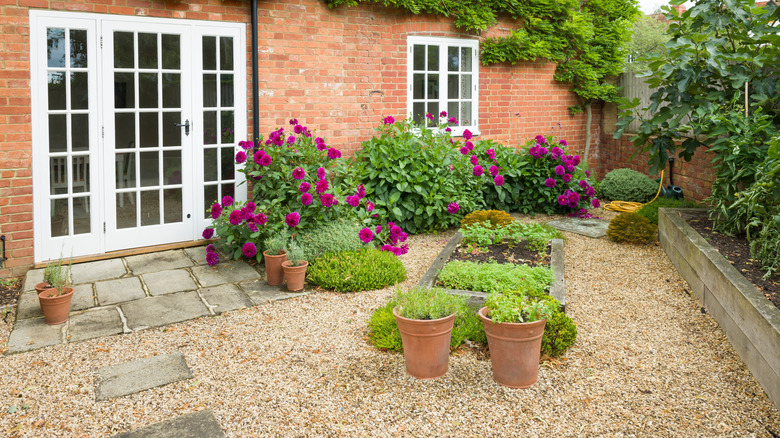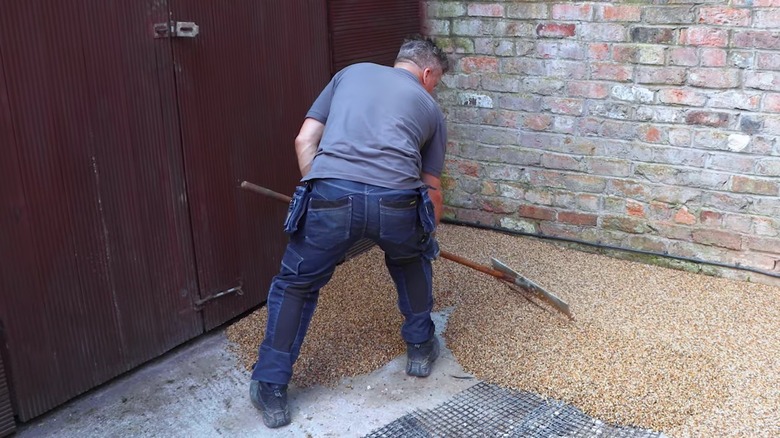Why Resin Bound Gravel May Be The Best Choice For Outdoor Flooring
When it comes to landscaping projects, gravel is a very popular choice. It's not only affordable but also versatile, as there are a plethora of options that can be used for patios, walkways, and more. If you're narrowing down choices for your outdoor flooring, resin bound gravel — sometimes referred to as "stone carpet" — has a lot to offer in terms of durability and ease of maintenance.
The term "resin bound" refers to the process of combining resin with aggregates such as gravel using a heavy machine called a forced action mixer. This process produces a mixture that can be used for landscaping, and when the resin hardens, it effectively locks the gravel in place. The finished product is much more durable and easy to maintain than regular gravel, and you don't have to worry about rocks getting into your yard or the surface becoming uneven. Resin bound gravel is a permeable, weed-resistant surface that is perfect for creating stunning walkways, patios, and the like; however, you should keep in mind that it is not ideal for driveways and other surfaces with vehicle traffic.
Another major advantage of resin bound gravel is that it offers a lot of flexibility. There are other durable gravel options, some of which even harden like concrete — but they don't offer as much versatility in terms of the finished look. With resin bound gravel, you can not only purchase colorful stones, you can also find resin in a variety of colors like vibrant blues and greens or more earthy browns. This allows you to experiment with more creative color options, and you can even add designs to your surface.
Other things to know about resin bound gravel
Although resin bound gravel has many strengths, one of its downsides is that it's more expensive than alternatives like resin bonded gravel. "Bonding" refers to the process of simply scattering gravel on top of a layer of resin in a process that is similar to using rock glue for gravel landscaping. Bound gravel, however, holds up better than bonded surfaces, so you may find that the cost is worth having less maintenance to deal with. If you're working on a budget, you can sometimes find deals on popular materials like pea gravel to help save on costs, and it can also help to plan ahead and order your materials during off-seasons (like early winter, for instance) when it's usually on sale.
When it comes to installation, though, that is one area in which you don't want to skimp on costs. You'll probably want to go with a professional for this project, as resin can be finicky to work with. If you decide to take it on by yourself, you must do thorough research ahead of time to ensure that you properly prepare your sub-base and pick the best resin for your project. It's recommended to find resin with UV stability that will prevent your flooring from fading due to sun exposure. Some resins offer features such as resistance to frost and even anti-slip coating. Each of these qualities will extend the life of your outdoor flooring, and with proper care, your resin bound gravel can last up to 30 years.

